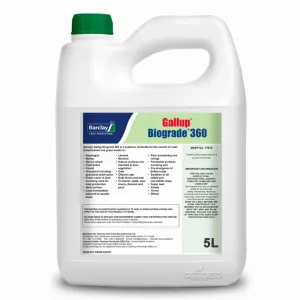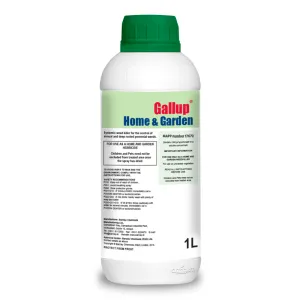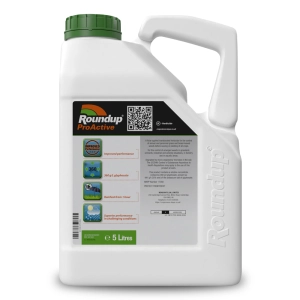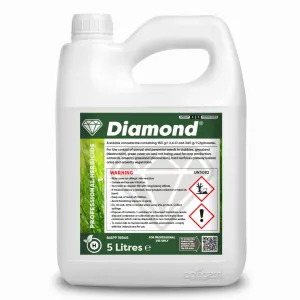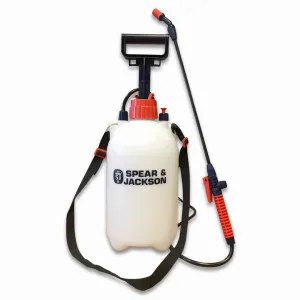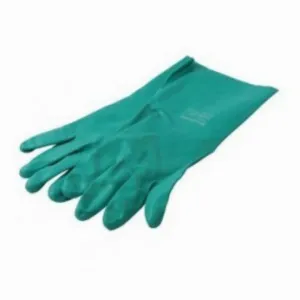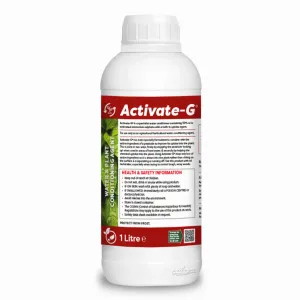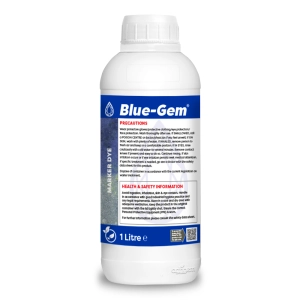Glyphosate works by inhibiting a plant’s enzyme system. The resulting reduction in enzyme production (specifically EPSP Synthase) weakens the supply of amino acids that are vital for plant growth.
It is absorbed by the leaves and stems and translocated throughout the plant, killing it in around four – 15 days when used according to instructions.
Glyphosate is known as a non-selective weedkiller, meaning that it will kill most plants – hence its popularity. On its own, glyphosate is not toxic to animals and humans, but it is used in different concentrations and mixes, so users must always read product labels carefully and follow manufacturer’s instructions.
We offer a range of glyphosate products here at Agrigem. Gallup Home and Garden Glyphosate is a popular herbicide used to control annual and perennial grasses and broad-leaved weeds in a variety of home settings.
Planting can take place seven days after application, and it is rain fast in six hours. Gallup Home & Garden Glyphosate contains 360g/l glyphosate with one litre covering up to 2,500sqm.
Gallup Home & Garden 1L is the same formulation as professional use products, and approved for amateur use, but professional users in the amenity sector are more likely to purchase one of our professional-use products including:
- Roundup ProActive 5L – controls a vast range of broad-leaved weeds
- Diamond Horsetail Weedkiller – glyphosate-based formulation specifically to tackle tough weeds like horsetail.
- Gallup Biograde 360 – a non-hazardous and amateur use formulation for control of all grasses and weeds.
We stock a large number of other professional-use weedkillers containing glyphosate, each with a particular formulation for a variety of uses. Roundup Pro Vantage contains 480g/l glyphosate making it a popular product with the amenity sector for its reduced application rate.
Generally speaking, the more concentrated glyphosate the product contains, the more powerful the product will be. Read more about industrial weedkillers in our guide.
Is glyphosate safe to use?
Glyphosate has been used as a standard weed treatment since the 1970s when it was first approved.
By 2010, it was in use in 130 countries. Since 2014, some of those countries introduced legislation to prohibit the sale or use of glyphosate for various markets and purposes.
However, in 2021, the European Commission appointed scientific experts from four nations to conduct an investigation, the results of which led to glyphosate receiving renewed authorisation for use in the EU for another ten years - from November 2023.
In the UK, glyphosate is authorised for use until December 2025. This followed the EFSA (European Food Safety Authority) finding no ‘critical areas of concern’ in its peer review of a glyphosate risk assessment.
Are there any alternatives to glyphosate?
Whilst glyphosate is the most effective weedkiller for treating broadleaf and perennial weeds, non-glyphosate weedkillers are available here at Agrigem. These include:
- Finalsan – contains pelargonic acid (fatty acids) instead of glyphosate.
- Spot On – contains acetic acid which, like pelargonic acid, breaks down the plant cell membranes on application.
- New Way Weed Spray – very fast acting natural herbicide containing acetic acid.
Whilst these weedkillers help offer great consumer choice, they are not as effective or as cost-efficient as glyphosate due to its vigorous ability to stop plants from growing.




